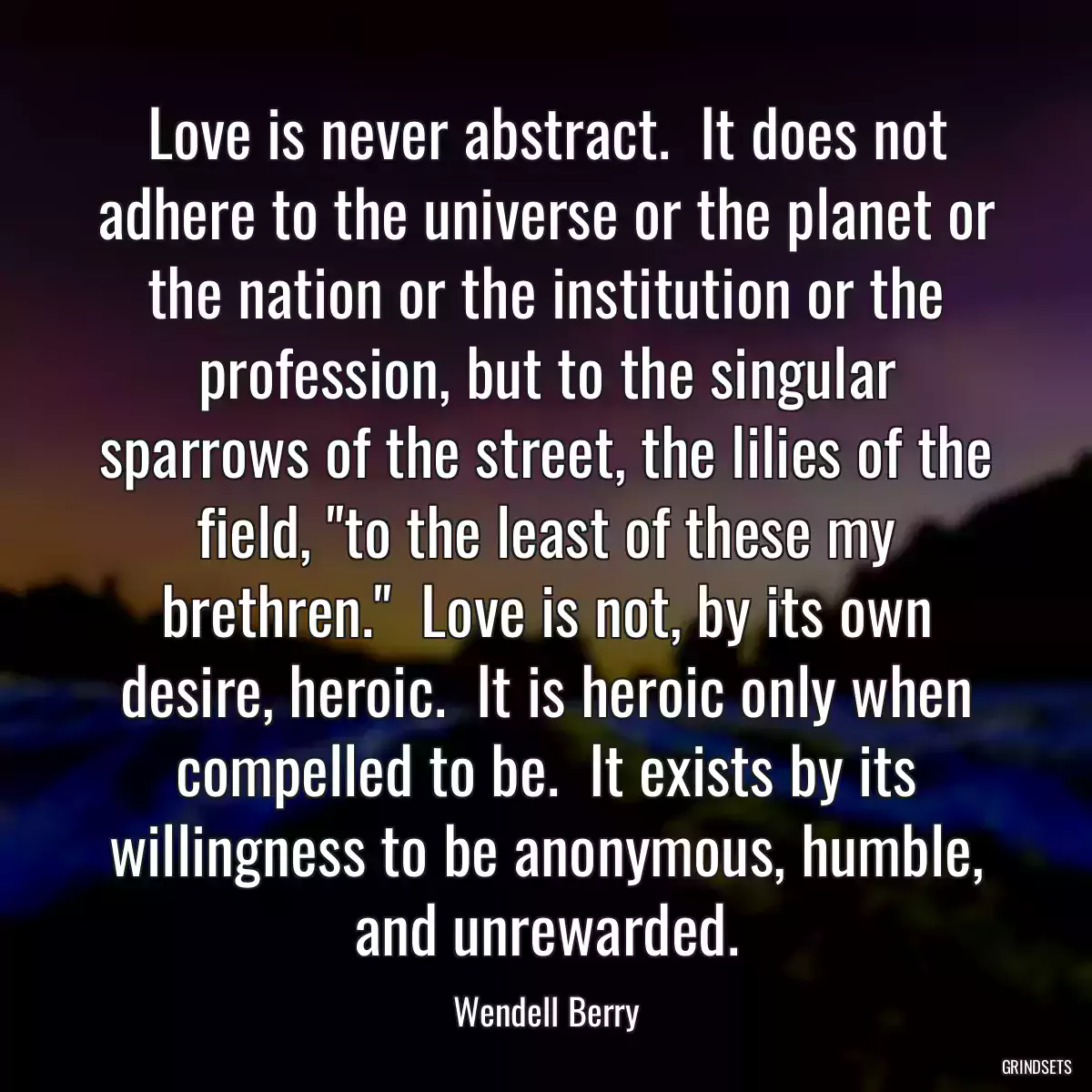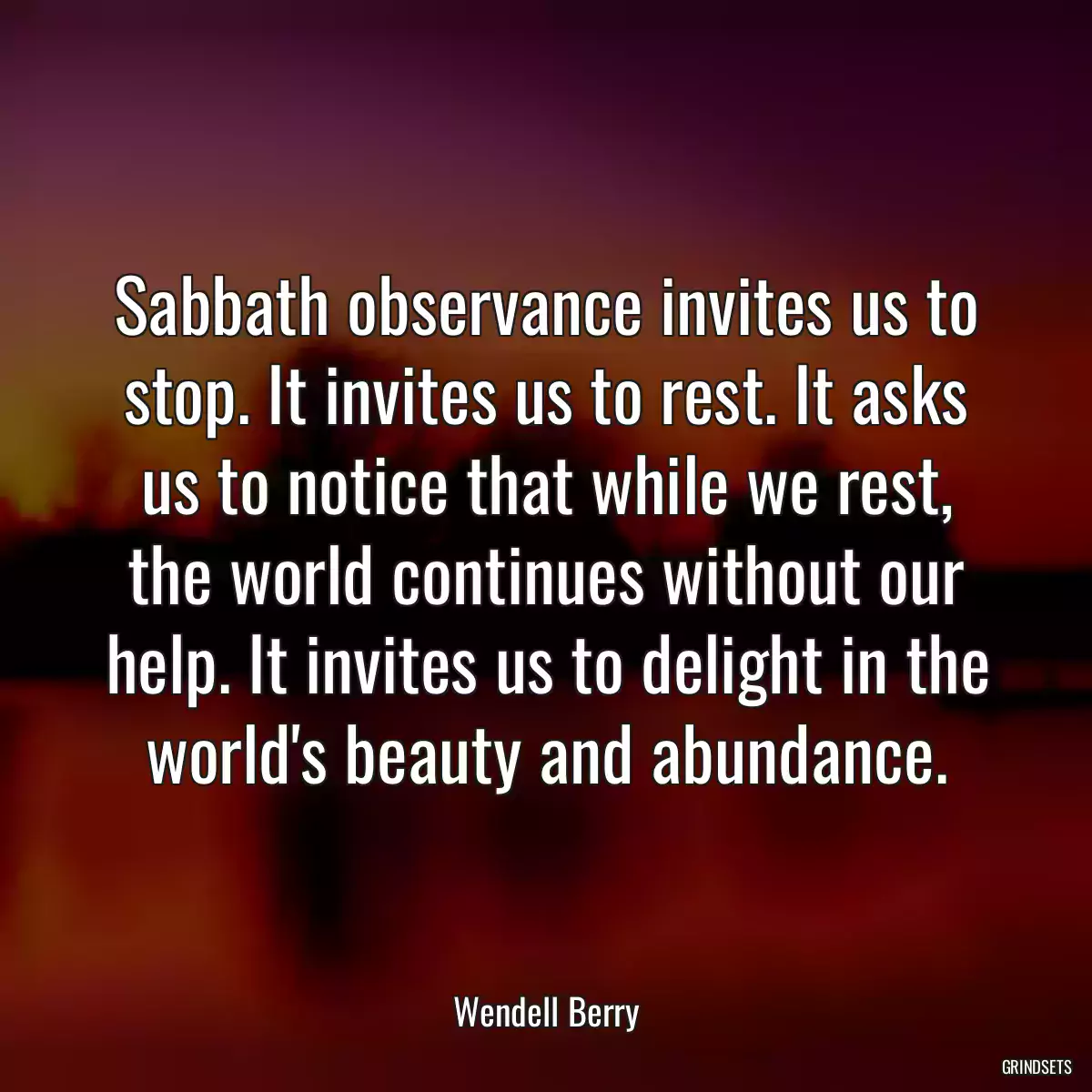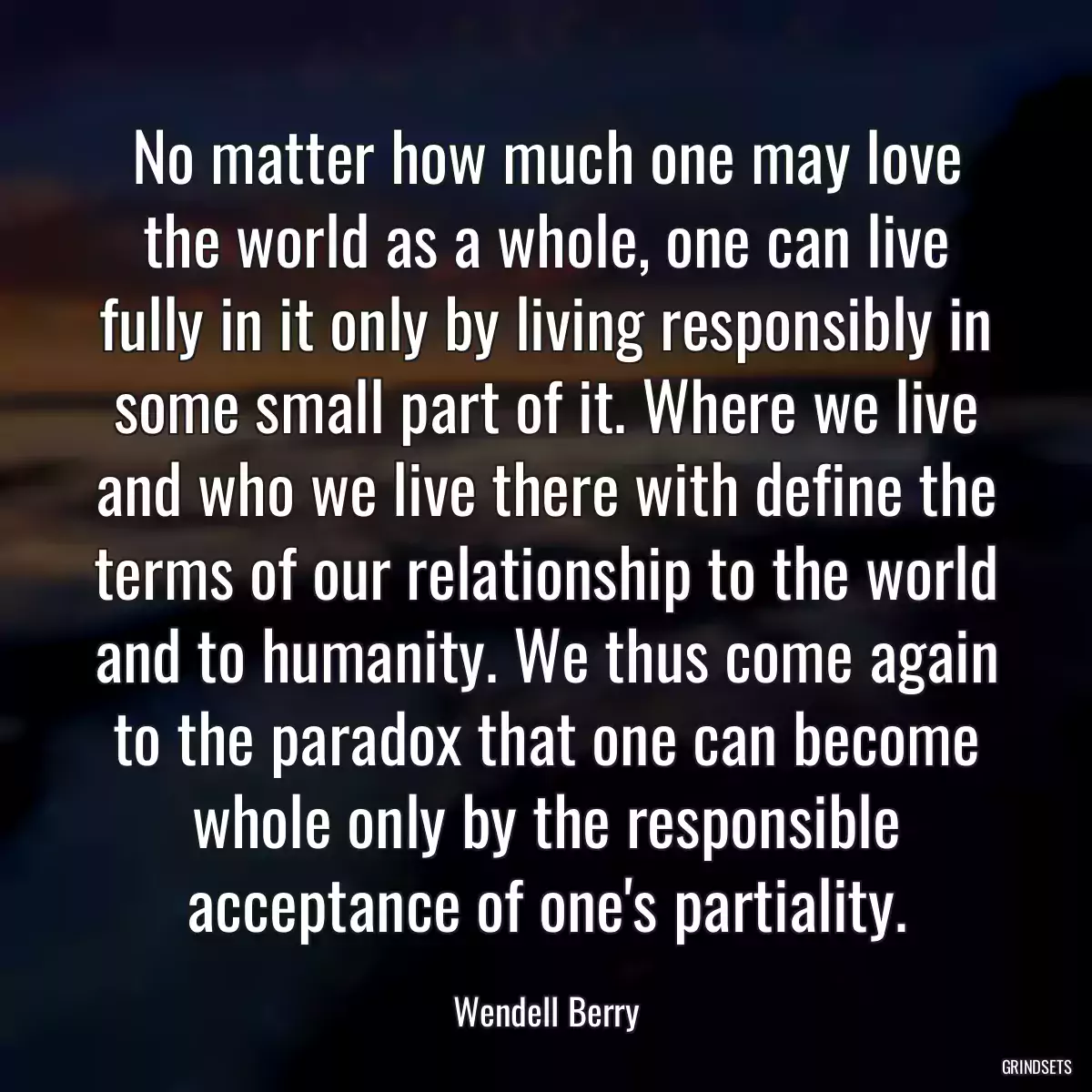
Love is never abstract. It does not adhere to the universe or the planet or the nation or the institution or the profession, but to the singular sparrows of the street, the lilies of the field, "to the least of these my brethren." Love is not, by its own desire, heroic. It is heroic only when compelled to be. It exists by its willingness to be anonymous, humble, and unrewarded.

